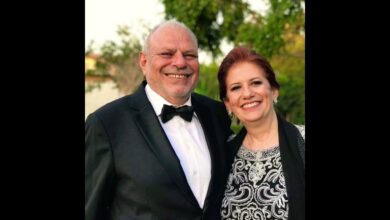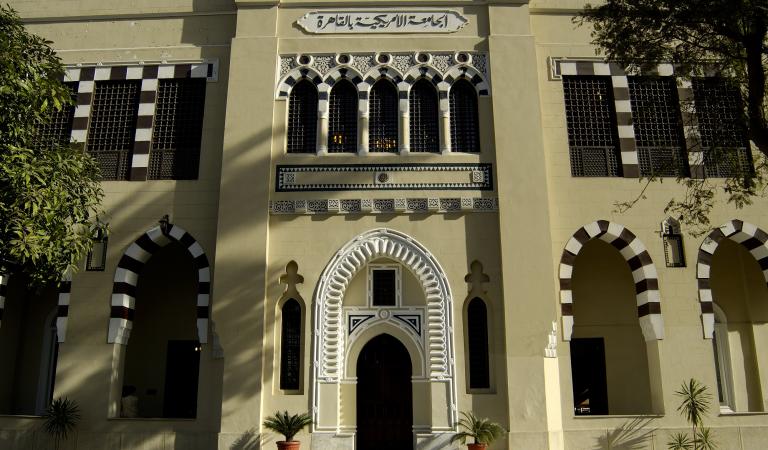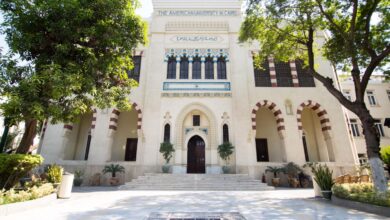
Students and staff at the American University in Cairo (AUC) resumed normal university life on Tuesday, as a compromise between student protesters and the administration appeared to end a long standing dispute over student tuition fees.
After a series of negotiations between Lisa Anderson, president of AUC, and the student representatives, an agreement was signed late Sunday announced in a press conference held on Monday at the Tahrir Square campus.
The agreement was supposed to put an end to a series of student blockades of university gates that had taken place over the past month and the resultant closure of the New Cairo campus on several occasions. Students had demanded that this year's seven percent increase in tuition fees be rescinded, and there be a cap on increases in future years.
The seven percent fee increase stands, but the administration agreed that fees will increase by no more than 2.3 percent for the next three years, assuming no major changes in domestic inflation and US dollar-Egyptian pound exchange rates.
“We agreed to ensure both financial transparency and to work with students and faculty to develop strategies,” Anderson said in the conference.
Some students have said that they are not merely concerned about the fee increase, but what they referred to as unsatisfactory services and the deteriorating quality of education.
“We will take students’ opinions before hiring new faculty, will validate the faculty evaluations more effectively and will have a new system for course registration,” Amr Salama, a university counselor, said.
While the conference was still going on with Provost Medhat Haroun giving his speech, one of the student protest leaders, Mohamed Hassan, popularly named as Antak, asked to speak, making a fuss among the coordinators.
“Revolution has entered AUC — the situation will change and is changing,” Antak said to applause from some students.
President Anderson refused to shake hands with Antak when he came on the stage.
“It is dangerous for you [students] that he’s the face of the movement,” Professor Aziza al-Lozy said, commenting on Antak’s intervention.
A Special University Tribunal made up of faculty, staff, students, administrators, alumni and members of the parents association will be formed to hear complaints against students accused of violating university policy during the campus blockade.
“There will be no impunity,” the agreement between the administration and the students stated.
Under the agreement, the mandate and composition of the tribunal would be announced by 4 October, and it would start work the following week.
“We will not accept punishment for any of the students who closed the gates; only students who are proven to have insulted members of the faculty or staff should be punished,” Taher al-Moataz Bellah, the president of the Student Union, said.
Throughout the strike, protesting students demanded the cancellation and reimbursement of the seven percent increase in tuition for the current year, a demand that was not met by the agreement.
“The demand that this year's seven percent tuition increase be rescinded is not possible; those funds are a part of this year’s current operating budget, on which staff salaries and operational expenses are based,” Anderson stated in an email sent earlier to the AUC community.
Though one of their main demands was not met, students who supported the strike seemed satisfied and were chanting celebrating the movement’s success.
“The agreement is not that satisfying but we had to compromise to ensure student unity,” Aly Zeineldin, one of the members of the student movement, said.
From its beginning, the movement had supporters and opponents among faculty members and fellow students, including amongst those who are usually part of the student movement, but were opposed to the methods of their actions over the past few weeks.
“My biological samples are inside the university. If the samples died, I will not complete my thesis and will have to stay for another semester in the university,” Mahmoud al-Desouki, a graduating senior in biology, said. “They complain of paying a lot and not getting scholarships? They simply don’t deserve scholarships.”



